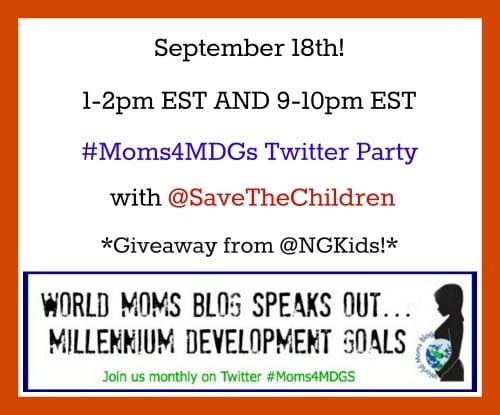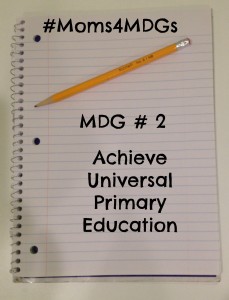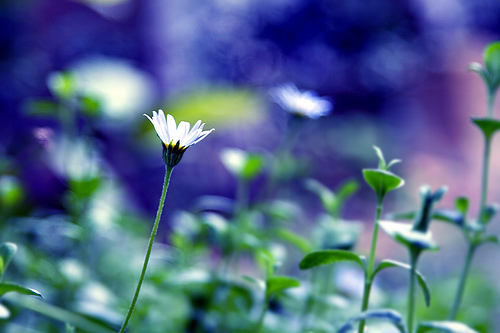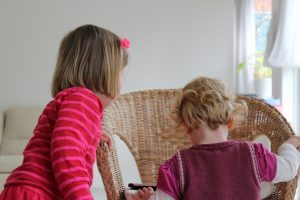
by Alison Fraser | Sep 24, 2013 | 2013, Africa, Canada, Childhood, Education, Eye on Culture, Family, Girls, Human Rights, Humanitarian, Humanity, Inspirational, International, ONE, Philanthropy, Poverty, Uncategorized, United Nations, Women's Rights, World Voice

City of Kitchener Councillor, Kelly Galloway-Sealock, and the author’s three daughters at a 2012 International Day of the Girl Child event
Mark your calendars and celebrate October 11th with your families and in your communities! Why you might ask? Well, the reasons are two-fold. Firstly, October 11th is Eleanor Roosevelt’s birthday. Eleanor was a world-renowned advocate for human rights and world peace. She was instrumental in the development and implementation of the Universal Declaration of Human Rights. So, how fitting is it that the United Nations has declared October 11th as the International Day of the Girl Child.
This October 11th marks the second annual International Day of the Girl Child. This day will be celebrated worldwide in an effort to bring attention to the human rights of girls around the world, and to highlight the gender-based struggles that so many young girls face daily.
Forced childhood marriages, rape, and female genital mutilation are just some of the issues that many little girls are forced to deal with at very early ages. In many countries, young girls are not valued and as a result are not invested in, particularly when it comes to schooling. The resulting long-term effects are alarming and have been documented in an eye-opening video by the Girl Effect movement. Please watch this video and share with friends and family – it will change the way you see the world. Girl Effect – the clock is ticking!
Last year, the focus of the very first International Day of the Girl Child was child marriage. This year, the focus will be on education. There are so many wonderful ways that you can participate in this important day. Whether you plan a family event or a community event, we all need to ensure that this very important day is recognized. Spread the word – girls are important and need to be valued, respected and treated as equal partners in our local and global communities.
What can you do to honour this important day? You can host a community screening of the Girl Rising film that is receiving acclaim worldwide. You can act to spread the word about struggles some young girls are facing in the world today. You can talk to your children about these critical issues. You can ask your child’s teacher to discuss this day with their class. You can organize a fundraising event in your office/workplace. Whatever you choose to do, whether it be large or small-scale, YOU can make a difference on October 11th!
Last year, my three young daughters tied pink ribbons in their hair and joined a local city councillor on a hike discussing the importance of human rights for all girls. It was a simple but highly effective way to celebrate this day. So many people asked them why they were wearing the ribbons, allowing them to speak about the day in their own words describing what it meant to them. It was so great to see the passion being shared by a younger generation, especially given that many of these issues are often difficult for them to understand and rationalize!
This year, we are planning a yoga event at a local studio for young boys and girls in the community. We are asking for small donations, which will then be used to support the educational needs of girls in Tanzania. In addition, my two older daughters have done small research projects on the significance of the International Day of the Girl Child, and will be presenting all that they have learned to their classmates on October 11th, thanks to the support of their teachers. I encourage you to plan an event too!Your event does not have to be fancy or sophisticated. Sometimes the smallest and simplest acts can have the greatest impact.
Let’s all celebrate October 11th together – girls are worth it!
As Eleanor Roosevelt once said;
“Where, after all, do universal human rights begin? In small places, close to home – so close and so small that they cannot be seen on any maps of the world. Yet they are the world of the individual person; the neighborhood he lives in; the school or college he attends; the factory, farm, or office where he works. Such are the places where every man, woman, and child seeks equal justice, equal opportunity, equal dignity without discrimination. Unless these rights have meaning there, they have little meaning anywhere. Without concerted citizen action to uphold them close to home, we shall look in vain for progress in the larger world.” – Eleanor Roosevelt
In what way might you celebrate the Day of The Girl Child?
This is an original World Moms Blog post written by Alison Fraser.
Alison Fraser is the mother of three young girls ranging in age from 5 to 9 years old. She lives with her family in Cambridge, Ontario, Canada. Alison works as an Environmental Toxicologist with a human environment consulting company and is an active member of the Society of Environmental Toxicology and Chemistry (SETAC). She is also the founder and director of the Canadian Not for Profit Organization, Mom2Mom Africa, which serves to fund the school fees of children and young women in rural Tanzania. Recently recognized and awarded a "Women of Waterloo Region" award, Alison is very involved in charitable events within her community including Christmas Toy and School Backpack Drives for the local foodbank.
More Posts - Website
Follow Me:



by Meredith (USA) | Sep 20, 2013 | Communication, Education, Family, Kids, Milestones, Motherhood, Parenting, Preschool, SAHM, School, USA, World Motherhood, Younger Children
 School will be starting for my children this week, and for many children this new routine and the new teachers can lead to much anxiety. Not only are the children feeling some of this anxiety but many parents are as well.
School will be starting for my children this week, and for many children this new routine and the new teachers can lead to much anxiety. Not only are the children feeling some of this anxiety but many parents are as well.
This past week, the teachers for my son and daughter called over the phone to introduce themselves before “meet the teacher” night. That same afternoon, a neighbor of mine called me to ask if I had received a phone call from my daughter’s teacher yet. I hadn’t at that time, and I could tell there was panic in my neighbor’s voice. She told me that she was very worried and upset that her son’s teacher this year was a “first year” teacher. She had been a teacher (and so had I), and we both know that the first year teachers do struggle a bit. But, in my opinion, the first year teachers bring with them the fresh ideas and new approaches to the classroom. I do understand her concern and could totally relate to her anxiety. (more…)
Meredith finds it difficult to tell anyone where she is from exactly! She grew up in several states, but mainly Illinois. She has a Bachelor of Science degree in Elementary Education from the University of Illinois at Champaign/Urbana which is also where she met her husband. She taught kindergarten for seven years before she adopted her son from Guatemala and then gave birth to her daughter two years leter. She moved to Lagos, Nigeria with her husband and two children in July 2009 for her husband's work. She and her family moved back to the U.S.this summer(August 2012) and are adjusting to life back in the U.S. You can read more about her life in Lagos and her adjustment to being back on her blog: We Found Happiness.
More Posts

by Elizabeth Atalay | Sep 17, 2013 | 2013, Education, Humanitarian, International, Millennium Development Goals, Uncategorized, World Moms Blog, World Voice

In 2000, 189 nations made a promise to free people from extreme poverty and multiple deprivations. This pledge turned into the eight Millennium Development Goals, and was written as the Millennium Goal Declaration .- United Nations Development Programme

This month as we continue our #Moms4MDG campaign we are excited to be joining forces with Save the Children to talk about MDG #2! Save the Children is an international non-governmental organization that serves to improve the lives of children in developing countries through better education and access to health care. Since 1919 Save the Children has been providing emergency aid to children in natural disasters and relief in conflict or war torn areas.
Millennium Development Goal #2 is to achieve universal primary education. Children need primary education to reach their full potential, and countries need to educate their children to succeed economically. MDG 2 strives for equal access to education for both boys and girls, and although according to the United Nations, primary school enrollment in developing nations is up to 90%, that still leaves around 57 million kids out of school. Imagine the progress that could be made with that many more educated minds.
Join us tomorrow on September 18th for our #Moms4MDGs Twitter party to discuss Global Education and MDG 2 with Save The Children. Twitter Party participants will have the chance to win a giveaway from National Geographic Kids! We hope to see you there.

P.S. Never been to a twitter party before? Go to www.tweetchat.com and put in the hashtag: “#Moms4MDGs during the party times. From there you can retweeet and tweet and the hashtag will automatically be added to your tweets. And, from there you can also view all of the party tweets!
Now head over to World Moms Blog contributor Martine De Luna’s post about MDG 2 on the Save the Children site!
This is an original post to World Moms Blog by World Voice Editor, Elizabeth Atalay of Documama in Rhode Island, USA.

Elizabeth Atalay is a Digital Media Producer, Managing Editor at World Moms Network, and a Social Media Manager. She was a 2015 United Nations Foundation Social Good Fellow, and traveled to Ethiopia as an International Reporting Project New Media Fellow to report on newborn health in 2014. On her personal blog, Documama.org, she uses digital media as a new medium for her background as a documentarian. After having worked on Feature Films and Television series for FOX, NBC, MGM, Columbia Pictures, Warner Brothers, 20th Century Fox, and Castle Rock Pictures, she studied documentary filmmaking and anthropology earning a Masters degree in Media Studies from The New School in New York. Since becoming a Digital Media Producer she has worked on social media campaigns for non-profits such as Save The Children, WaterAid, ONE.org, UNICEF, United Nations Foundation, Edesia, World Pulse, American Heart Association, and The Gates Foundation. Her writing has also been featured on ONE.org, Johnson & Johnson’s BabyCenter.com, EnoughProject.org, GaviAlliance.org, and Worldmomsnetwork.com. Elizabeth has traveled to 70 countries around the world, most recently to Haiti with Artisan Business Network to visit artisans in partnership with Macy’s Heart of Haiti line, which provides sustainable income to Haitian artisans. Elizabeth lives in New England with her husband and four children.
More Posts

by Frelle (USA) | Sep 13, 2013 | Friendship, Health, Home, Homeschooling, Kids, Motherhood, Parenting, Working Mother, World Motherhood
 The truth about motherhood is that no one prepared me for this.
The truth about motherhood is that no one prepared me for this.
No, really.
Have you ever actually admitted that, out loud? That you feel lost, unprepared, five years behind where you “should” be in raising your children?
I just did. (more…)

Jenna grew up in the midwestern US, active in music and her church community from a young age. She developed a love of all things literary thanks to her mom, and a love of all things science fiction thanks to her dad. She left the midwest in her early twenties and has lived in the south ever since.
On her blog, she tries to write words that make a difference to people. Long before she attended college to major in Special Ed and Psychology, she became an advocate for special needs and invisible disabilities. She's always been perceptive of and encouraging to those who struggle to fit in. Having been through several dark seasons in her own life, she's found empowerment in being transparent and vulnerable about her emotions, making deep and lasting friendships, and finding courage to write from her heart. Her biggest wish is to raise her kids to be compassionate people who love well.
She's been online since 1993, with a total of 19 years of social media exposure. Having friends she doesn't know in real life has been normal for her since her junior year in college, and she's grateful every day for the ways technology helps her stay in touch with friends from all over the world.
Jenna lives in a suburb of Raleigh, North Carolina, and is a freelance writer and a stay at home single mom to 3 girls and a boy. She blogs at MadeMoreBeautiful.comMadeMoreBeautiful.com.
More Posts - Website
Follow Me:




by Olga Mecking | Sep 12, 2013 | Multicultural, Netherlands, Preschool, Technology, Uncategorized, World Moms Blog, World Motherhood
 I am raising digital natives and I love it. Technology is a big part of our lives. My brother-in-law once jokingly asked: “Is there a pen in this highly digitalized household?”
I am raising digital natives and I love it. Technology is a big part of our lives. My brother-in-law once jokingly asked: “Is there a pen in this highly digitalized household?”
“iPad” was among my now 2-year old’s first 50 words. When we Skype with my parents, sometimes my 4-year old gets tired and tries to swipe my father’s image away because she thinks that my laptop has a touchscreen.
There are many ways to approach digitalization. Some parents, bloggers and researchers focus on the negative impact digital technology (and technology in general) can have on our lives. They give tips on reducing screen time, warn against oversharing and treat technology as something that needs to be tightly controlled.
Others are amazed by the opportunities that technology offers us. They mention the community- building aspects of social media platforms, the opportunity to access information everywhere and at any time, and remark that our lives have been made much easier by digital technology.
Where do I stand on this? More in the technology-is-awesome camp.
As an expat, I appreciate the possibilities to not only hear my parents’ voices, but to also see them- and they can see the children. I can use my iPad to do yoga with the children, and to connect with them that way. We don’t have a TV, but instead we use our computers to watch TV series and movies, and read the news. I love taking pictures and I have a digital SLR. That way, I can take tons of photos to choose the very best. And I haven’t even touched on the great advantages I get from blogging. My hands rebel when I try to draw or paint, but my computer allows me to do just that.
I view technology as a tool that can be used to our advantage without taking control over our lives. I think that there is a time and place for everything. I love the term “digital natives”. Just as our children can teach us how to speak another language, we can learn to use all these wonderful devices and find delight in using them.
On the other hand, we can teach children to use technology and social media responsibly. I also think that we can teach them the world of paper books and sounds without a picture, and the world outside of the house rather than the world inside of their devices.
To me it is obvious that technology has much to offer in terms of education and play. But I believe that through technology we not only can connect with a device, but with our children (and grandchildren!) as well.
What is your approach to modern technology? Do you love it or hate it?
This is an original post to World Moms Blog from our writer and mother of two in the Netherlands, Olga Mecking.
The photograph used in this post was taken by the author.
Olga is a Polish woman living in the Netherlands with her German husband. She is a multilingual expat mom to three trilingual children (even though, theoretically, only one is trilingual since she's old enough to speak). She loves being an expat, exploring new cultures, learning languages, cooking and raising her children. Occasionally, Olga gives trainings in intercultural communication and works as a translator. Otherwise, you can find her sharing her experiences on her blog, The European Mama. Also take a while to visit her Facebook page .
More Posts - Website
Follow Me:




by Karyn Wills | Sep 2, 2013 | Brothers, Childhood, Education, Family, Life Balance, Motherhood, Nature, New Zealand, Parenting, World Moms Blog, World Motherhood, Younger Children
 When my boys were learning to roll over, I never stopped them from bumping their heads on the floor. We had carpet, vinyl and tiles, and they had access to all of those surfaces and often rolled from one to another. By the end of the first week there had been a few bangs and tears, but nothing that couldn’t be sorted with a cuddle and rock in my arms – and they had all learned to lift their heads up as they rolled.
When my boys were learning to roll over, I never stopped them from bumping their heads on the floor. We had carpet, vinyl and tiles, and they had access to all of those surfaces and often rolled from one to another. By the end of the first week there had been a few bangs and tears, but nothing that couldn’t be sorted with a cuddle and rock in my arms – and they had all learned to lift their heads up as they rolled.
I didn’t really think about this approach much but assigned it to other events as they grew. I did things like: holding my hand over the corner of a table when they toddled by; casually pointing out the floor was wet after I had mopped it; physically turning them around as they crawled down our concrete steps, so they could get down backwards; making sure they had one bed they could bounce on; and showing them how to get out of the trees they had climbed. As a result by the age of four they could all do things like; cut food and sticks using sharp knives, get themselves out of tight spots, and use a battery-drill and an iron without hurting themselves. By then they knew the difference between tools and toys.
I never pushed them or even encouraged them to do these things; I just (mostly) allowed them to as they were inclined to, taught them a few tricks, and turned up with plasters and cuddles when things didn’t go according to plan.
I have come to accept that children are driven to seek a certain amount of danger and I have found the more I have allowed my boys to set the pace of their ‘dangerous’ behaviours the more self-assured and capable they have become, and more aware of the risks NOT to take.
They occasionally have bitten off more than they could chew (when four years old, our eldest decided to ride around our block alone on his bike, he didn’t want to do that again for another two years) but most often than not they have taken small steps, fast. I often see children who have not been allowed to take the same small steps and they seem, to me, to be either too timid to take any chances or they over estimate their abilities to truly dangerous levels.
There seem to be two strong opposing forces in New Zealand parenting at the moment. One in which ‘safety first’ is the catch phrase, and the other which emphasises the importance of children being allowed to take measured risks. It seems I’ve ended up on one side of this debate without even trying, but now am really pleased that I have taken the approach I have taken.
What’s the approach to danger in your house? Do you think children need to be kept safe or that they need to learn to manage danger?
This is an original post to World Moms Blog from our writer in New Zealand, Karyn Van Der Zwet
The photograph used in this post is credited to the author.
Karyn is a teacher, writer and solo mother to three sons. She lives in the sunny wine region of Hawke’s Bay, New Zealand in the city of Napier.
More Posts






 School will be starting for my children this week, and for many children this new routine and the new teachers can lead to much anxiety. Not only are the children feeling some of this anxiety but many parents are as well.
School will be starting for my children this week, and for many children this new routine and the new teachers can lead to much anxiety. Not only are the children feeling some of this anxiety but many parents are as well.




 The truth about motherhood is that no one prepared me for this.
The truth about motherhood is that no one prepared me for this.







